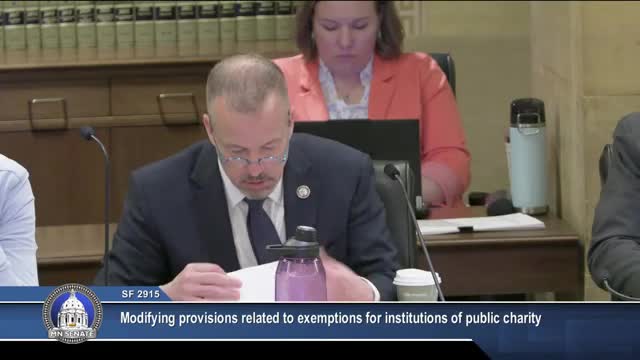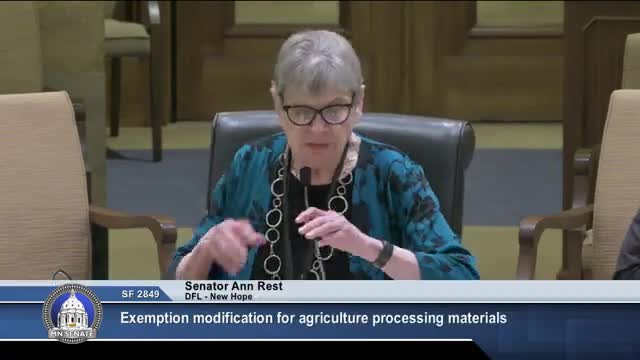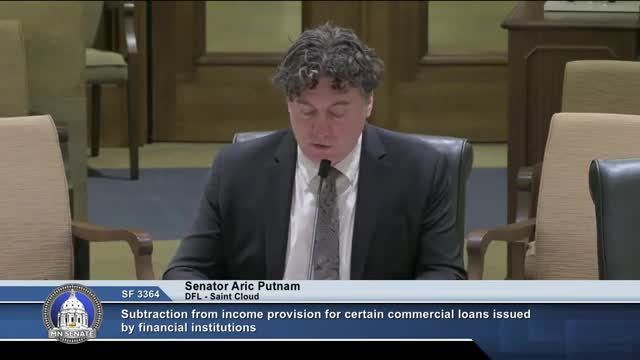Article not found
This article is no longer available. But don't worry—we've gathered other articles that discuss the same topic.

Committee considers clarifying that conservation‑eased lands can qualify for managed‑forest (2C) tax classification

Panel considers easing residency rule to help preserve family farms

Committee hears bill to clarify timing of sales tax on sporting-event tickets

Bill would raise city spending limit for free public musical entertainment to $10,000

Committee weighs proposal to address tax treatment after court ruling on charitable housing

Committee hears bill to add milk processing facilities to agricultural processing sales‑tax exemption

